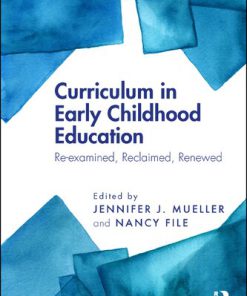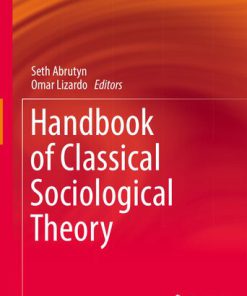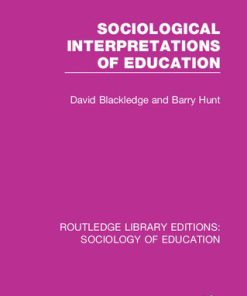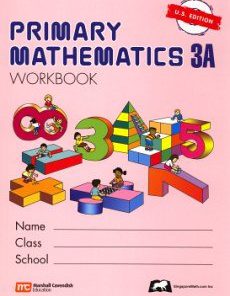Powers of Curriculum Sociological Aspects of Education 2nd Edition by Brad Gobby, Rebecca Walker ISBN 9780190333843 0190333847
$50.00 Original price was: $50.00.$25.00Current price is: $25.00.
Powers of Curriculum Sociological Aspects of Education 2nd Edition by Brad Gobby, Rebecca Walker – Ebook PDF Instant Download/Delivery: 9780190333843 ,0190333847
Full download Powers of Curriculum Sociological Aspects of Education 2nd Edition after payment
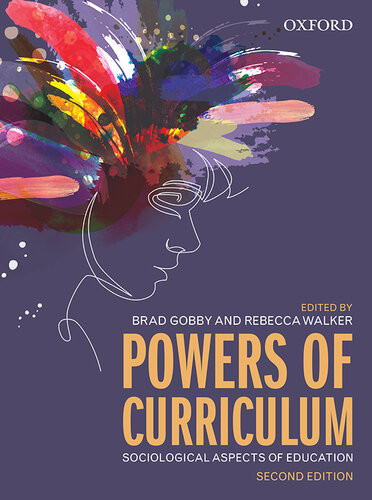
Product details:
ISBN 10: 0190333847
ISBN 13: 9780190333843
Author: Brad Gobby, Rebecca Walker
Powers of Curriculum Sociological Aspects of Education 2nd Edition Table of contents:
PART I » INTRODUCING CURRICULUM
1 What is Curriculum?
Introduction
Power and education
What is curriculum?
Educators thinking big
Conclusion
2 Using Theory to Think Critically about Education
Introduction
Why theory?
Post-structuralist and critical perspectives
Critical pedagogies
Conclusion
3 A History of Schooling and the Making of Children
Introduction
A brief history of schooling: Three perspectives
Childhood and its regulation through schooling
The practices of regulating and forming young citizens
Conclusion
4 Exploring and Embracing Learner Diversity through a Sociological Lens
Introduction
Knowing you and your learners
The politics of schooling and inequality
Social class
Socio-economic status and poverty
Gender
Sexuality
Race and ethnicity
Social justice and equity
Conclusion
5 Educators’ Philosophies: Encountering and Weaving Images
Introduction
Expectations of curriculum
Images of childhood
Images of educators: The dictatorship of no alternatives
An ethic of resistance
Images of learning settings
Conclusion
PART II » UNPACKING CURRICULUM ISSUES
6 Neoliberalism, Education and Curriculum
Introduction
Historical perspectives: The emergence of neoliberalism
Neoliberalism as a form of governance: Key characteristics
Neoliberalism, education and curriculum
The future of neoliberalism (and why thinking about it is important)
Conclusion
7 The Education System and Social Class: A Shifting Relationship
Introduction
Social status and education
The establishment of Australia’s education system
Disadvantage and advantage in 21st-century Australian schooling
Shifts in education policies and practices
Inequality and the curriculum
Conclusion
8 The Trap of Binary Thinking: Problematising Gender and Social Disadvantage
Introduction
Binary thinking
Binary thinking and gender
False dichotomies and norms
Gender and the curriculum
Disadvantage and education
Conclusion
9 Understanding the Techniques of Colonialism: Indigenous Educational Justice
Introduction
Historical and policy context
Understanding the historical legacies of colonisation
Mapping the colonial (and neoliberal) techniques of exclusion
De-colonial and anti-colonial approaches
Conclusion
10 Rethinking Australia’s Cultural Diversity
Introduction
Australia’s multicultural policy
Realising a culturally inclusive agenda through education
Conclusion
11 Psychology, Psychiatry and Neuroscience in Education
Introduction
Psychological knowledge in our everyday life
Developmental psychology in education
Special education
Education and neuroscience
Conclusion
12 Child and Youth Identity Formation: Consumerism and Popular Culture
Introduction
Culture and identity
The influence of popular culture
Fashion: What’s hot and what’s not
Fashion and popularity: A film study
Whose popular culture?
Youth popular culture
Digital and participatory culture
Popular culture in learning contexts
Conclusion
PART III » CREATING AND ENACTING CURRICULUM
13 Critically Reflective Practice: What Is It and Why Is It Needed Now?
Introduction
Two personal anecdotes
Why is CRP needed now?
What makes the thinking ‘critical’?
How does CRP work?
Conclusion
14 The Virtual Schoolbag and Pedagogies of Engagement
Introduction
Schooling disengagement
Engagement through pedagogy
Engagement through curriculum
Conclusion
15 Environment as Curriculum
Introduction
Environments as zones of entanglement
Theoretical perspectives
Characteristics of educational environments
Environments for democracy
Organising space, materials and time
Conclusion
16 Digital Technologies, Schooling and Children’s Rights
Introduction
Digital technologies and schooling
Children’s and young people’s digital rights
A digital rights approach to examining school practices
A digital rights approach in the classroom
Conclusion
17 Datafication and Assessment
Introduction
Assessment in context
Educators making a difference through assessment
Conclusion
18 Planning the Curriculum
Introduction
Planning
Planning and the official curriculum
Agency in planning
Rights-based education
Enacting curriculum through learner-centred approaches
Conclusion
Glossary
Index
People also search for Powers of Curriculum Sociological Aspects of Education 2nd Edition:
powers of curriculum 2e eb sociological aspects of education
what are the aspects of education
what are the main features of education
power of education sociology
powers of curriculum sociological perspectives on education
Tags:
Brad Gobby,Rebecca Walker,Curriculum Sociological,Education
You may also like…
Uncategorized
The Curriculum History of Canadian Teacher Education 1st Edition Theodore Michael Christou (Editor)
Education Studies & Teaching - School Education & Teaching
Politics & Philosophy - Sociology
Medicine - Others
Medicine - Neurology
Neurobiological and Psychological Aspects of Brain Recovery 2nd Edition Laura Petrosini
Education Studies & Teaching - Educational Theory
Sociological Interpretations of Education 1st Edition David Blackledge
Medicine - Anatomy and physiology
Physical Aspects of the Human Body 2nd Edition by Hartmut Zabel ISBN 9783110756982 3110756986
Medicine - Diseases
Development of the Cerebellum from Molecular Aspects to Diseases 2nd 2nd Edition Hassan Marzban
Uncategorized




